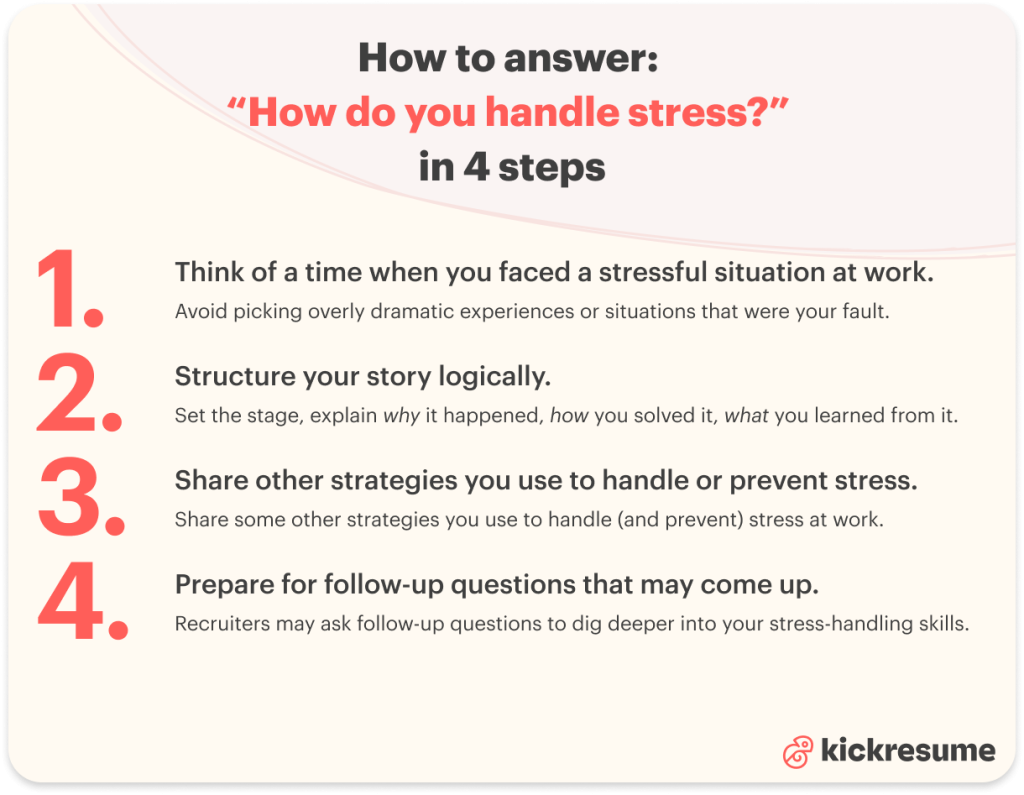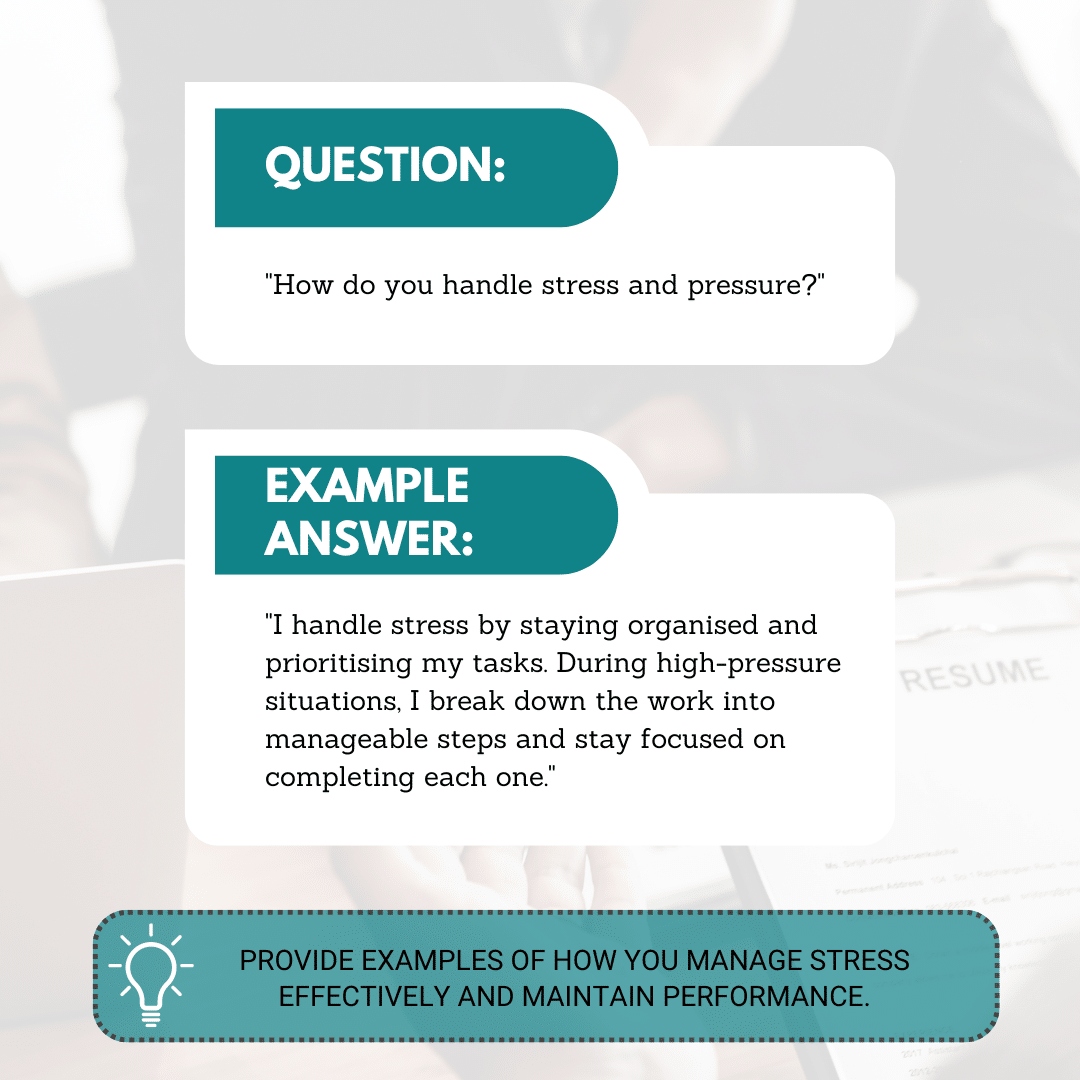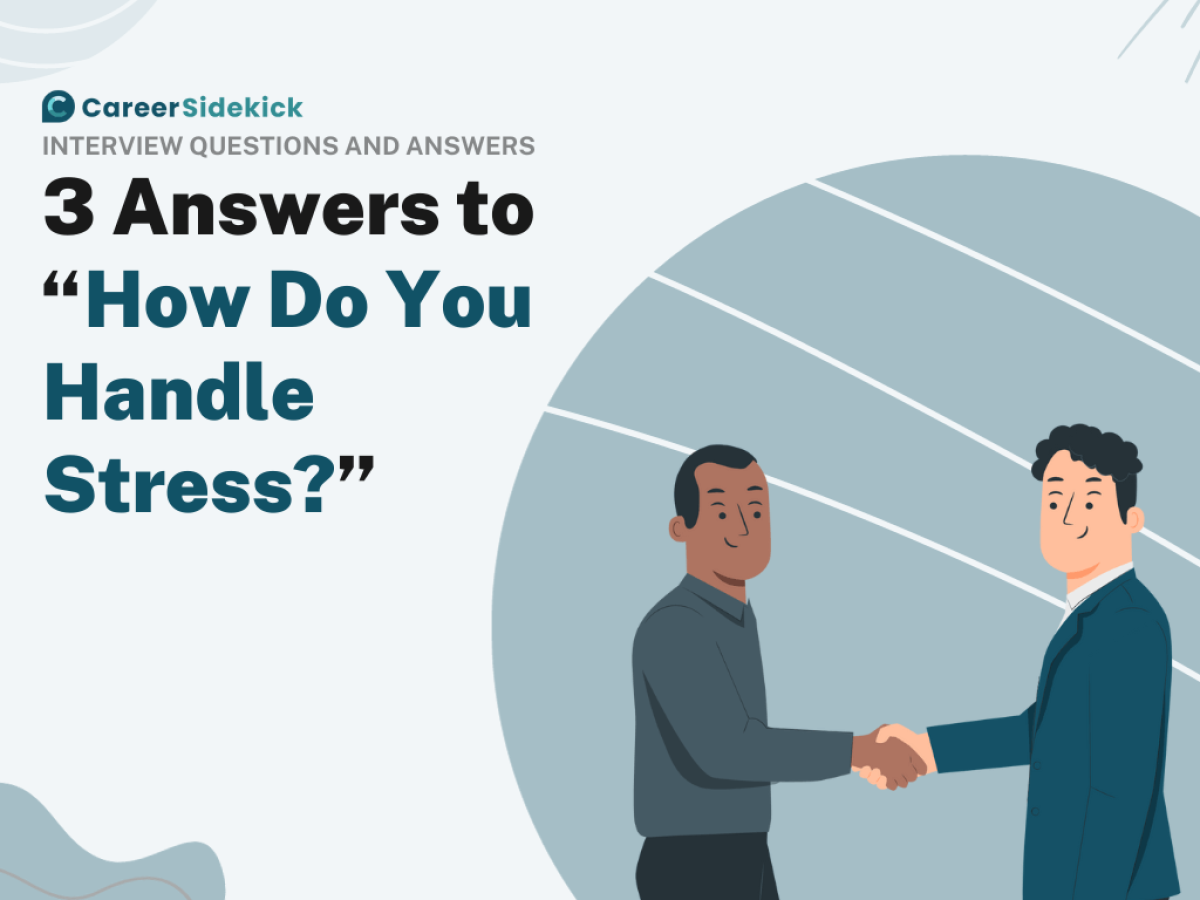Job interviews can be very stressful. Many people feel pressure during these moments. It’s normal to worry about how to answer questions. You might wonder if you will say the right thing. This article will help you understand how to handle stress in job interviews.
Understanding Stress in Interviews
First, let’s talk about stress. What is stress? Stress is a feeling. It can happen when you face challenges. A job interview is a big challenge. You may feel nervous. That’s okay. Many people feel this way.
Why do we feel stress? We worry about what others think. We fear making mistakes. These feelings can lead to stress. Stress can make it hard to think clearly. This is why it is important to learn how to handle it.

Credit: blog.kickresume.com
Types of Interview Questions
In a job interview, you may face different types of questions. Some questions can cause more stress than others. Here are a few common types:
- Behavioral Questions: These ask about past experiences.
- Situational Questions: These ask how you would handle a situation.
- Technical Questions: These test your job-related knowledge.
- Stress Questions: These are meant to see how you cope with pressure.
Each type can make you feel different levels of stress. Understanding them helps you prepare.

Credit: www.how2become.com
How to Prepare for Stressful Questions
Preparation is key. Here are some ways to prepare for stressful questions:
1. Research The Company
Learn about the company you are applying to. What do they do? What are their values? Understanding the company can help you feel more confident.
2. Practice Common Questions
Write down common interview questions. Practice answering them. You can do this with a friend or in front of a mirror. The more you practice, the easier it gets.
3. Use The Star Method
The STAR method helps you answer behavioral questions. STAR stands for:
- S: Situation – Describe the situation.
- T: Task – Explain the task you had to do.
- A: Action – Talk about the action you took.
- R: Result – Share the result of your action.
This method helps you tell clear stories. It makes your answers stronger.
4. Prepare For Stress Questions
Stress questions can be tricky. They might ask, “How do you handle pressure?” To prepare, think of examples. Think about a time you faced stress. How did you handle it? Share that story during the interview.
During the Interview: Tips to Handle Stress
Even with preparation, you may still feel stress during the interview. Here are some tips to help you stay calm:
1. Take Deep Breaths
Before you start, take a few deep breaths. Breathe in slowly. Hold it for a moment. Then breathe out slowly. This helps calm your nerves.
2. Listen Carefully
Make sure to listen to the questions. If you don’t understand, ask for clarification. It is better to ask than to guess.
3. Take Your Time
Don’t rush your answers. It’s okay to take a moment to think. This shows you are careful and thoughtful.
4. Stay Positive
Keep a positive attitude. Smile when appropriate. This can help you feel more relaxed. It also makes a good impression.
5. Focus On Your Strengths
During the interview, focus on your strengths. Think about what you do well. Talk about your skills and experiences. This will boost your confidence.
Handling Difficult Questions
You may face tough questions. Here are ways to handle them:
1. Stay Calm
When faced with a hard question, stay calm. Take a deep breath. Think before you speak. This will help you give a better answer.
2. Be Honest
If you don’t know the answer, it’s okay to say so. You can say, “I’m not sure, but I am willing to learn.” This shows you are honest and open to growth.
3. Use Past Experiences
When answering difficult questions, share past experiences. Talk about what you learned. This can show your problem-solving skills.
After the Interview: Reflect on Your Experience
After the interview, take some time to reflect. Think about what went well. What could you improve next time? This reflection helps you grow.
1. Write It Down
Write down your thoughts. What questions were easy? Which ones were hard? Writing helps you remember for next time.
2. Seek Feedback
If possible, ask for feedback. Some interviewers may offer advice. This can help you improve.
3. Keep Practicing
Practice makes you better. Keep practicing for future interviews. The more you practice, the less stress you will feel.
Final Thoughts
Handling stress in job interviews is important. It can make a big difference. Remember to prepare well. Use the tips from this article. Take deep breaths and stay positive.
With practice and preparation, you can handle stress better. Interviews may always be a bit nerve-wracking. But with the right tools, you can do well. Good luck in your next interview!















Leave a Review